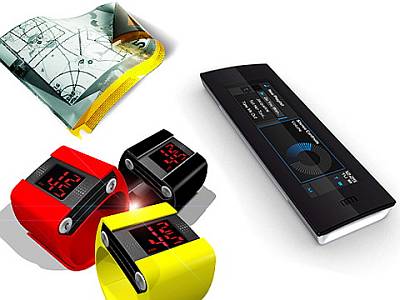Prospects of mobile phones' talks and development perspectives of future mobile terminals such as "embedded mobile phones inside the body"

Many people now live using mobile terminals such as mobile phones and smart phones now so that almost all can be said, the original prototype "first mobile phone" is a former engineer of Motorola It was developed by Martin Cooper et al. Mr. Cooper called the inventor of the first mobile phone talks about the initial state of development and future prospects of mobile terminals in an interview.
Meet The Inventor of the First Cell Phone - YouTube
Mr. Martin Cooper, who developed this prototype mobile phone. It has the world's first mobile phone on the right hand side and the latest smart phone on the left hand side.
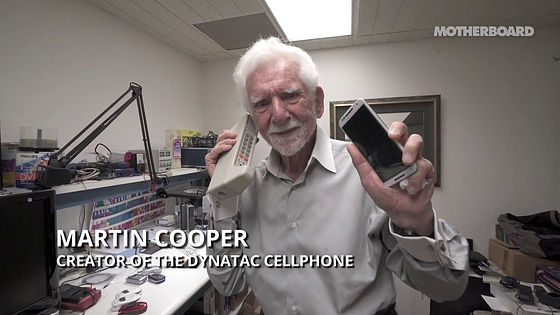
Mr. Cooper, a juvenile era, looked at children in the town burning paper with magnifying glasses and thought that they wanted to do it myself, broke a bottle of cola and tried to substitute for lenses He was a vigorous person. Although that attempt ended in failure, from that time Mr. Cooper said that he was aware of his own feeling that "I will become an engineer in the future."
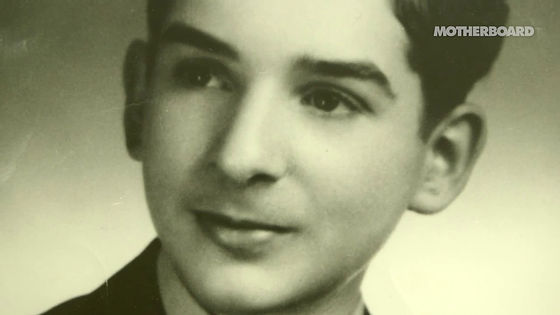
In the early 1970s Mr. Cooper had a position at Motorola. At that time, Motorola was a company whose core business is a wireless two-way communication system such as "walkie-talkie" like a transceiver.
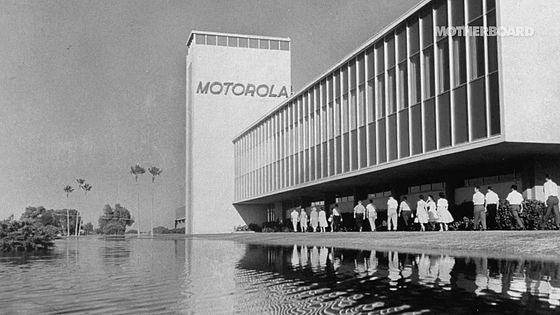
On the other hand, AT & T - T, the largest telecommunications company in the United States, invented a "cellular" telephone system that separates radio waves by separating areas with small cells, and develops technology that enables more people to talk using radio waves Did.
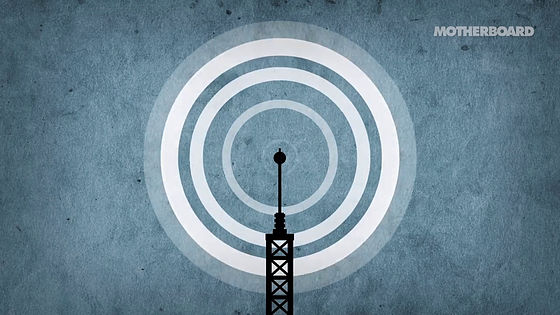
And adversity comes to Motorola. Supervise the telecommunications business in the United StatesFederal Communications Commission(FCC) will consider allowing the AT & T permission to use radio waves.

Although it was a measure to make operations more efficient by leaving AT & T to the permission of electric waves, this means that it becomes impossible for Motorola to use radio waves freely, and it will fall into a situation where business can not be continued There was even danger.

Therefore, Motorola will challenge AT & amp; T against the opponent. Motorola will appeal to the FCC and encourage government agencies to strengthen its presence in Washington, the center of politics, to create a competitive market rather than AT & T T & D, and AT & amp ; T looks like it is advancingA car telephoneIt is not a mobile terminal that can be carried and used at any time, that ismobile phoneWe proposed.

In order to demonstrate its usefulness, Motorola including Cooper prototypes actual terminals. This is exactly the prototype of the current mobile phone.

You can learn more about the AT & T, FCC, and interesting episodes surrounding Motorola at this time in the following pages.
(PDF file)Mobile communication overseas (part 1) Mobile phone in the US NTT DoCoMo

In August 1973, Mr. Cooper brings the press and draws it to the street corner of New York. This was Mr. Cooper 's strategy of trying to inform the public about its convenience by actually showing the use scenery of the mobile terminal, but the opponent who made a phone call is Motorola' s nemesis, AT & amp; T It was Mr. Joe Engel, who led the technical department.


When I entered my number, Mr. Engel came out quickly. "Hey Joe, Cooper, now I am calling you from my mobile phone, it's a real cell phone, a cell phone that I can carry and carry with my personal hands," he says, Mr. Engel He lost his words for a while and was silent, Mr. Cooper said.
"I think that he probably was bruising behind the phone, but he answered politely and quietly hung up."

"Everyone, including their colleagues, I feel relieved, because there are nothing like modern chipsets yet, and thousands of parts have been soldered to the board in the main body, and on Motorola's day Engineers are always on standby, so we were able to deal with them right away in case of any chance. "

"This is a cell phone call made in the public for the first time in the world, probably still thinking that Joe is annoying at that time," he said. Furthermore, "I think that the invention of a cell phone was a serious event, it should have been as important as the invention of the wheel", he says that day was a turning point in history.

◆ The future of mobile phones
Mr. Cooper, who is literally "the creator of mobile phones," also talks about the prospects for future mobile terminal development.

"I think that it is still a stage where people are learning what mobile phones are like now.To find some" secret power "hidden in mobile phones, some generations I think that it is necessary to go through. "

"It's totally unnatural to speak with such an object you want to lay flat on your ear."

"I think that the function itself of" talking "will continue in the future, but in future it will be possible to talk by embedding a small chip with a powerful computer around the back of the ear, You will be able to do it. "

"In addition, other devices will be able to manage the function and state of the body by embedding it in the body"

"And that function will communicate with outside worlds other than myself through a mechanism that I call" personal server. "

"To shape such a future is software, it is very difficult to find things that really matched to me from among tens of thousands of existing apps.Therefore, artificial intelligence (AI) It will be useful. "

"When AI evolves and gains superior performance, AI automatically searches for necessary apps as a user's" butler "automatically"

"People are now searching for apps, but in the future the app will find us, is not it wonderful?"

"I will continue to engage in this world from now on and I'd like to see all things."

"But since it will not actually happen, I hope my successor will sit in this chair and make my dreams come true," he said of the prospect of future development.

Related Posts:
in Video, Hardware, Software, Smartphone, Posted by darkhorse_log






